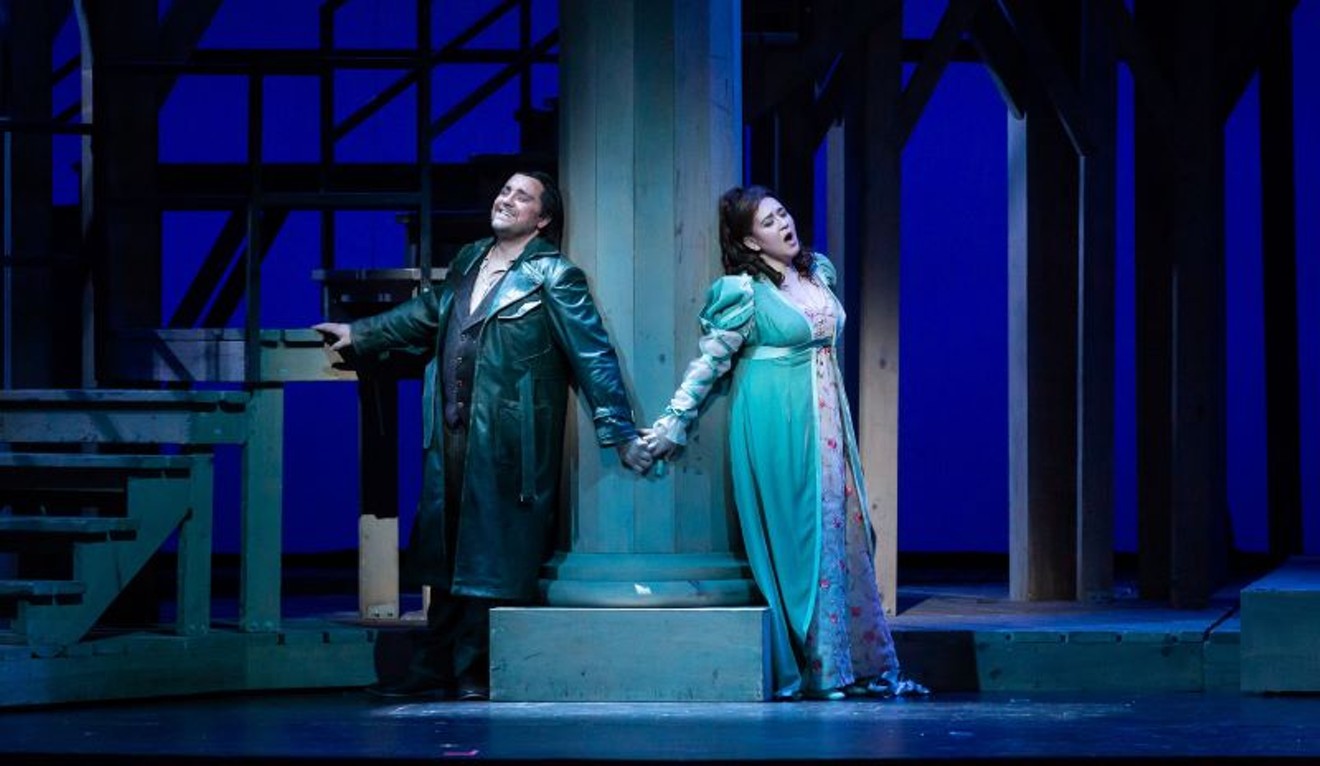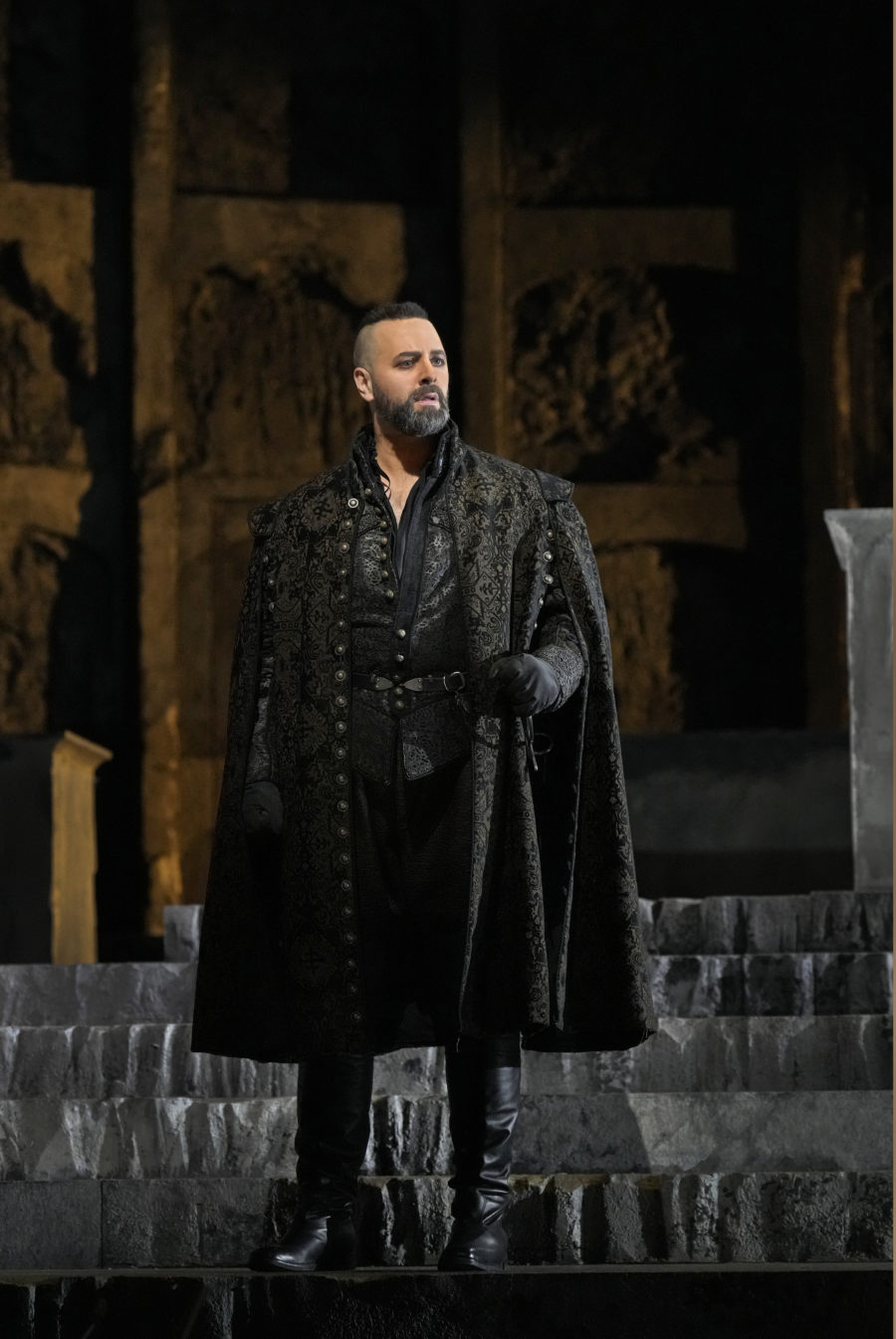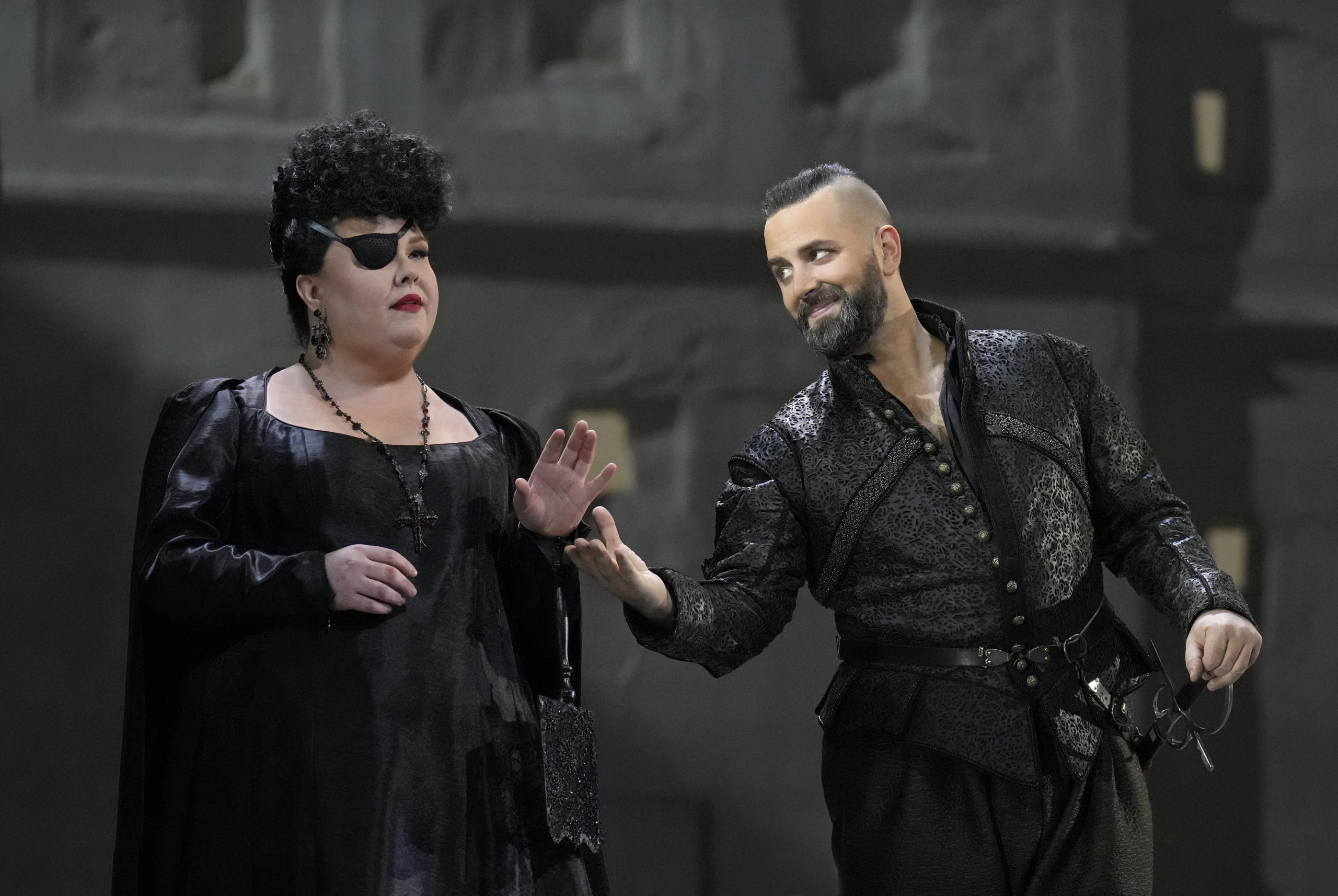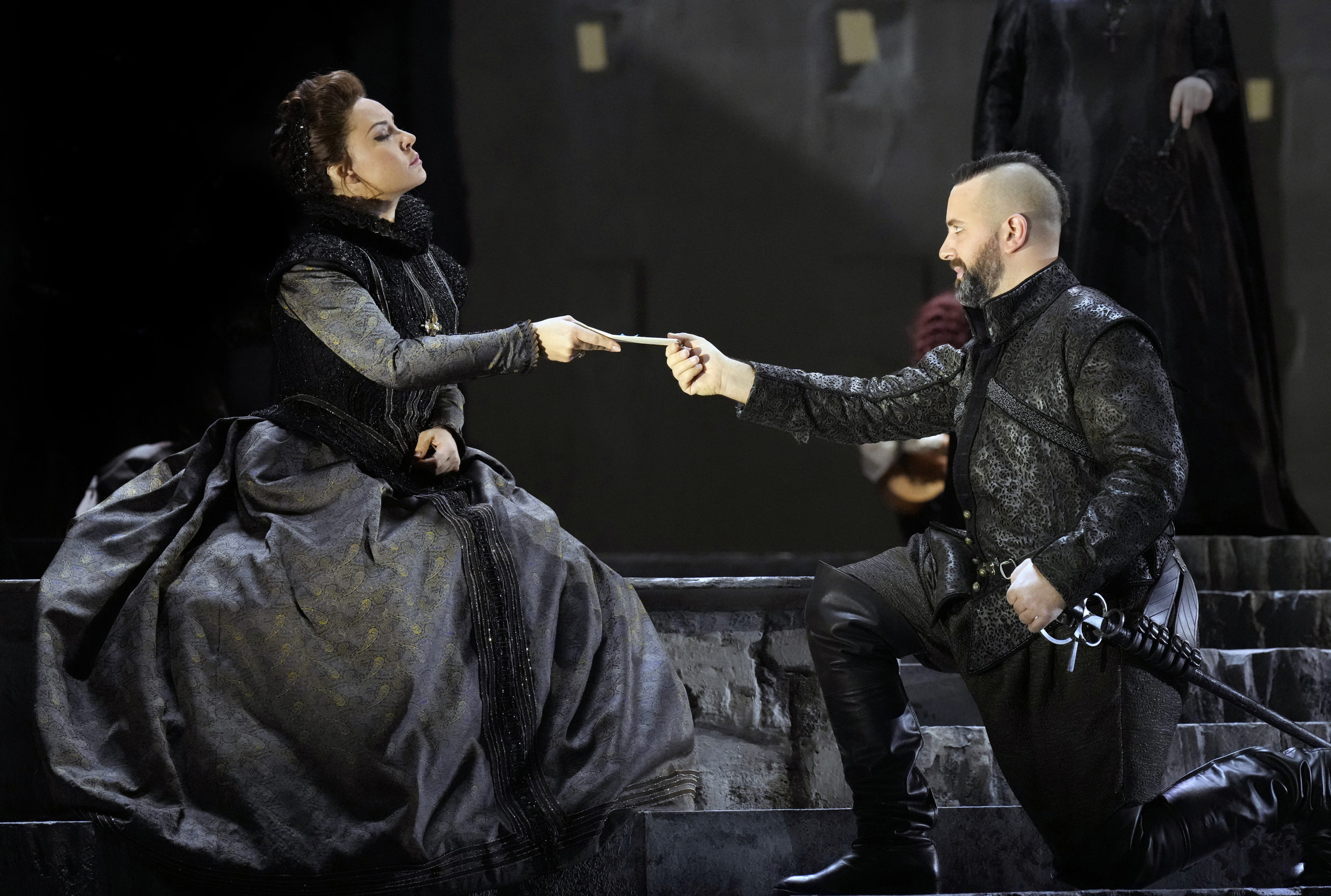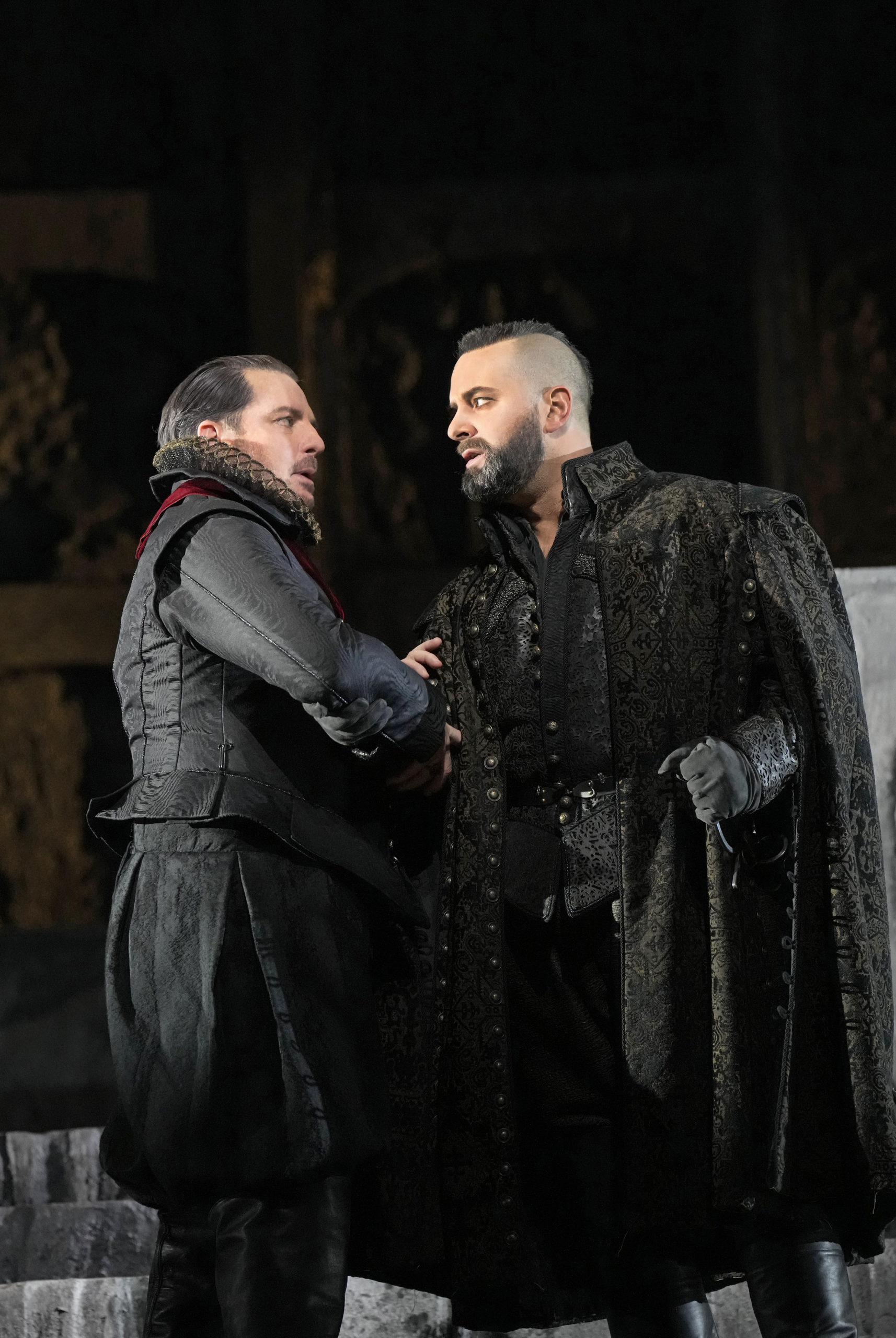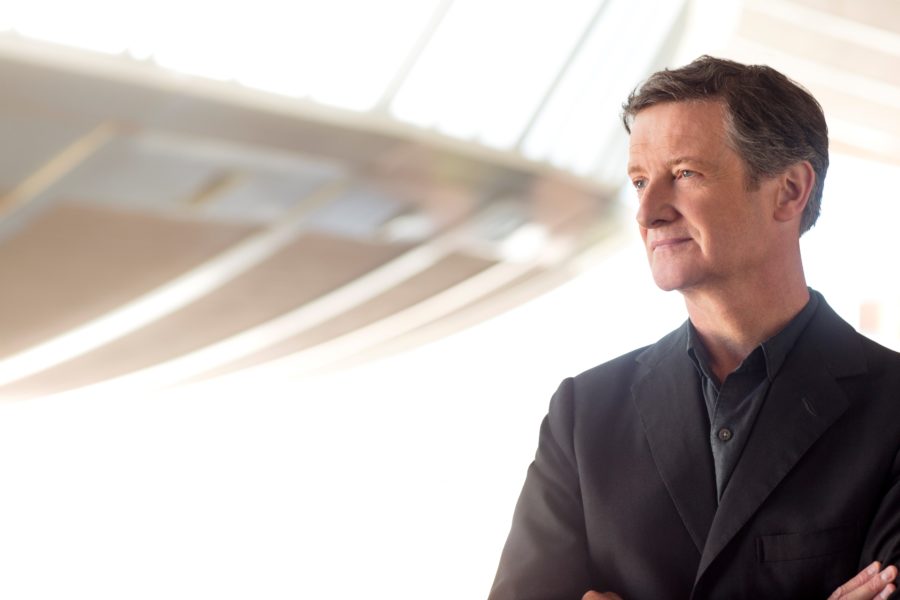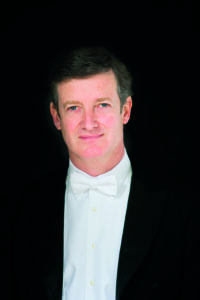History can be many things, but mostly, and especially within the classical arts, it is heavy. Alexander Neef, General Director of the Opéra national de Paris (OnP), is aware of this weight, yet he views it as a rich inspiration. The German administrator, who was the company’s Casting Director from 2004 to 2008 before becoming General Director of the Canadian Opera Company for twelve years, came to his current position in autumn 2020, much earlier than planned and smack in the middle of the coronavirus pandemic. It proved the first of many adversities managing one of the opera world’s most celebrated and storied institutions, one which has been known as much for its variety of names as for its trials and tribulations in the distant and not-so-distant past.
Those challenges, particularly since 2020, are very real: financial pressures, strikes, accusations of racism, the sudden resignation of Music Director Gustavo Dudamel. Where there is strife, however, there is also hope. This past March saw French-Senegalese OnP ballet dancer Guillaume Diop join the company’s coveted “Etoile” (star) category; he is the first Black artist to achieve the top rank. In 2020 Diop had co-authored a manifesto (“On The Racial Question in Opera”) which criticized discrimination within the organization. Neef, as you’ll read, took these concerns seriously, and met them with his own initiatives. A report commissioned by the company in February 2021 stated that diversity was seriously lacking, with Diversity Referent Myriam Mazouzi (who is also Director of the OnP Academy, a training ground for young artists) underlining the need for the company to “get out of our walls” and “open up our recruitment channels, otherwise we always have the same profiles and we become poorer.” To facilitate this opening, the company embarked on an ambitious initiative in French Guyana in 2022 to encourage and promote local talent. L’Opéra en Guyane works in close collaboration with Guyanese cultural institutions and includes all training in voice and dance as well as set design and makeup. The program ran this past October and November, and will return to Guyana again in March 2024, with its development being chronicled in a documentary series on POP (Paris Opera Play), the company’s dedicated streaming platform.
POP itself is impressive, hosting an immense and ever-updated archive of anytime-is-a-good-time (read: audience-friendly) viewing which includes all aspects of OnP’s considerable output: ballet, orchestral concerts, and opera (with subtitles available in English and French), as well as backstage documentaries, masterclasses, and artist interviews. The platform is the realization of the company’s earlier foray into video streaming, l’Opéra chez soi, launched just after Neef’s arrival in December 2020, and elegantly demonstrates a commitment to something beyond sexy opera branding, an overused aspect within the current classical-marketing landscape which mostly involves substance-free clickbait and/or posts (whether on social media or websites proper) with plenty of seemingly intellectual finery but ultimately bereft of the humanity and depth their subjects demand. POP runs counter to this trend; a thoughtful and accessible platform, its user-friendly design and wide range of subject matter implies a trust to let its users decide for themselves what is sexy – or intriguing, provocative, challenging, entertaining, engaging.
The platform’s launch happened almost concurrently to news of OnP joining forces with behemothic streaming giant Apple Music Classical. Along with playlists and previews, the channel features two special sections, curated by José Martinez, Director of Dance, and Neef, respectively. As noted in Van Magazine this past August, OnP has proven remarkably adept at attracting the ever-important young audiences, with all of these initiatives demonstrating a deeply intelligent stance in attracting younger people (although €10 tickets can’t hurt either). ADO (Apprentissage De l’Orchestre) takes things one step further. The company’s first French young lyric orchestra works in direct partnership with eleven different French conservatoires and provides opportunities for apprenticeships and performances on the main stage of the Bastille, the more modern of the company’s two spaces, the other being the famed Garnier. Each space comes, of course, with its own particular set of heavy histories.
Amidst all this – whither music? Gluck, Lully, Rameau, Cherubini, Gounod, Meyerbeer, Rossini, Donizetti, Verdi, Massenet, Saint-Saëns, Berlioz, Thomas, Halévy, Stravinsky, Messiaen: a partial list of composers who have enjoyed historic premieres with the Opéra and a veritable who’s who of classical music history, albeit a lineup some may perceive as creaky in 2023. Those names, however, sit comfortably beside contemporary ones including Adams, Adés, Saariaho, Kurtág, as well as acclaimed modern directors like Lydia Steier, Kirill Serebrennikov, Wajdi Mouawad, and Barrie Kosky. Ballet is an equally intriguing mix of traditional (Nureyev, Ashton) and modern (Pina Bausch, Jiří Kylián). Navigating the shifting classical landscape of the 21st century, particularly in a post-pandemic landscape, is scary business for any house, requiring a good deal of confidence in both institution and audiences, and a willingness to push the expectations and boundaries of both. The ambitiousness of Neef’s plans combined with an ever-smart approach to programming and production means audiences can expect slightly more than polite visions of familiar (or even unfamiliar) territory.
In our last exchange in 2020, conducted when he was still in Toronto, Neef emphasized a need for the new; in 2023 Paris, there is a broader if no less compelling view. Nothing quite new, as Roman statesman Cicero noted in Brutus, is perfect. That doesn’t mean it shouldn’t be attempted, particularly at a time when the opera world feels more divided than ever, as much by geographies and money as by ideologies and history. But history is, like the future, only heavy without the muscles – and the brains – to bear it; Alexander Neef has both, and then some.
When we last spoke you mused on the role of so-called “safe” repertoire and audience fatigue; has time in Paris altered your views?
I don’t think so. One of the things that’s come out of the pandemic is to consider the thinking process around what do we do here. We are called the Paris National Opera; we have an obligation for specificity in the planning and programming, but also we have to ask what is our identity and how do we express via our programming? I think there are some very simple principles that have come from that question, and they are referenced in our programming now. First we have to take care of our own repertoire , which is a very large repertoire and includes all the pieces created at the Paris Opera and predecessor organizations over the centuries. That’s why you’ll find one or two productions which represent our house repertoire , if you want – Charpentier’s Médée, for instance. There’s a very rich variety to choose from. The other aspect is pieces which we have not premiered here specifically but which are part of French repertoire – works which are not in our repertoire currently which we are bringing back, like what we’ve done with Cendrillon, Faust, Romeo et Juliet, also Massenet’s Don Quichotte which we are presenting later this season. We are one of the biggest companies in the world, so yes, there is a standard repertoire.
The last part of this, which is also important for identity, is 20th and 21st century repertoire. The priority is not necessarily commissioning – as you know it takes time for those pieces to be developed – but to look at successful pieces of the very recent past and bring them to the Paris Opera, like Kurtág’s Fin de partie in the 21-22 season, or The Exterminating Angel, which we’ll do later this season. With Angel it’s also the first new production after the world premiere that we’ll be doing. All that is a very deliberate attempt to bring those pieces to the repertoire by presenting them often, which means if someone has created something great and we think it’s great, there’s no reason why we shouldn’t present it here just because we haven’t commissioned it. We have a couple co-commissions coming up; one we did with Festival D’Aix is coming to us soon; another, a substantial piece at La Scala, will be presented in Italian there and then come here later in French.
So to circle back to your original question, when we do the revivals of the standard or even the new productions, we try to bring people to the company who hadn’t sung here before and create a relationship of trust with the audience; even though they might not know all the names on the playbill, they can expect it will be a quality proposal. We just had Tamara Wilson onstage here – she had sung Turandot in Toronto in 2019. It was highlighted (in Paris) because Sondra (Radvanovsky) had to cancel the run and Tammy was slotted into the opening. People were like, “Who is this Turandot I’ve never heard of?” – but now everybody knows who Tamara Wilson is. Sometimes we have to have the confidence and trust to just do the things we feel are right.
House identity is something I’ve considered a lot this year. You told the New York Times in 2021 that when you were hiring a diversity officer that you wanted to put on “opera and ballet by 21st century artists for 21st century audiences” – what role has that diversity initiative played in house identity?
We’re lucky in Paris, the debate around diversity is much less charged than in North America. I say that without criticism of what’s going on in America, but it does create an opportunity here to get things done more quickly because we’re not in conflict but in a spirit of working together. One of the things that happened concurrent to BLM (Black Lives Matter), I was still in Toronto, confined in my kitchen then, but already appointed to take over in Paris, was that we decided to commission a diversity report for my arrival. At the same time a group of artists and other employees of colour in the company reached out and said, “We want to talk to you, we want to know how you feel about this issue.” They wrote a manifesto which was published in August 2020, when I was almost there – though I wasn’t supposed to be, I was supposed to arrive a year later – but at that time we had an initiative coming from the incoming leadership and the employees. There was a base of discussion which was almost immediate because we did not need to get over a steep mountain of conflict. We now have an advisory committee who meet regularly with staff but also with people from outside the opera, where we discuss all issues related to our repertoire and performances, as well as recruitment practices and so on. The discussions are all evolving.
We also started a big education outreach project in French Guyana with two main purposes, one of them to just run one of our established outreach programs for young people there but also to find talent, mostly for dance, but also for singing and instruments in the long run, people can be trained to reach the levels of excellence we would have to expect of the artists who perform here.
“If I want society to buy into what we do then we need artists from all kinds of backgrounds, people who want to do it, and can do it.”
What role does the newly-created ADO (Apprentissage De l’Orchestre – Learning the Orchestra) play in all this?
It’s too early to say yet, it’s just started; we’ve had two or three weekends when they’ve been together so far. But I think it’s in the same spirit. Today in France most musicians are the sons and daughters of other musicians – they get into the field or some form of arts environment early on and there are few obstacles if they want to learn to sing or play an instrument. Our challenge is to open up the pipeline, to create a larger pipeline, different pipelines, because one of the crucial issues of recruitment is that if you always look in the same spots and at the same people you’ll always find the same thing. The moment you open up and look at things a bit more broadly, there will be different talent. And all of this is not part of any ideology, but it’s more if I can say, the perennial nature of our art form: yes, what we do is opera and ballet for 21st century artists by 21st century artists. If I want society to buy into what we do then we need artists from all kinds of backgrounds, people who want to do it, and can do it. The imminent challenge for the repertoire is obviously finding people who are trained to perform it at our level, and who may also say, “We still want to sing Don Giovanni or Don Carlo, or dance Swan Lake or Giselle.” It’s for everybody to find themselves in what we do, on the performers’ side just as much as the audience’s side.
Alexandra Wilson recently wrote at The Critic that “It is not opera’s job to do social work.” I wonder what you make of that with relation to your various initiatives.
I think what we benefit from and use to our advantage, since we have a strong critical mass for culture in France but especially in Paris, is that we use our cultural weight to be heard, to be seen. What I’ve discovered being here is that whatever we do there is a lot of attention; when I commissioned the diversity report it was like a signal. We can put the subject on the map. So we try to do that quite deliberately now, to choose the subjects we want to talk about in order to get them the visibility we can, in our position, provide.
La Vestale, with Lydia Steier directing, may or may not make the world a better place, but it does seem like an interesting symbol of where the company is at now.
That’s fair, but like I said before: if we want to do the repertoire which has a reputation of being difficult to realize onstage, then we will tell it our way. La Vestale has certain formalisms the audiences of today are not quite familiar with today, so it’s vital to find not only one artist but a group of artists to say, “We want to defend this repertoire for an audience of today and we actually want to tell a story.” Whatever we do, whether it’s more or less traditional – even though one doesn’t know what that exactly is – or completely out-there avant-garde, it’s a reading of a piece, because we cannot not offer readings of pieces. We have to hire a cast, a director, and a conductor to read the piece for us; it’s not all there in the score and they just have to do what’s written. It would be an oversimplification to think that. We need people who actually do it. Otherwise we can sit with the score and read it, which is a more personal and private thing, but there is no unalterable truth that will always be the same. That’s why we still keep working on repertoire both recent and old – things like Médée, which we’re doing since the first time we created it in 1693.
Does that history feel heavy at points?
I find it rather exhilarating, I have to say, because there is a richness and also a high responsibility for this repertoire – but also an incredible richness. I find it really quite wonderful there’s that depth to draw from.
“The thing about going to the theatre, not only opera, is that it’s an individual and collective experience, in one.”
There were very polarized reactions to Robert Wilson’s staging of Turandot in Paris recently; do you find yourself having to explain or justify your choices to your audience?
First of all there’s no such thing as The Audience, anywhere. Secondly, and I said it at the COC that we had 2000 people every night; here at the Bastille we have 2700, and a different audience. The thing about going to the theatre, not only opera, is that it’s an individual and collective experience, in one. You are part of the collective who sits there but you also experience it all for yourself. So of course there will always be audiences who are more conservative and others who are more avant-garde, and then everything in-between. And in the end it’s very simply, “I like / don’t like what I see onstage” – that’s fine. But if we maintain there is not solely one truth in the pieces we present, then there can’t be one opinion, no matter how we present them. Ultimately it’s not about liking or not-liking something but being able to talk about it. The essence of theatre is to engage in a dialogue about what we’ve experienced together onstage. That dialogue is something that’s big in everyday life here, and it can be made richer because of people having a deep cultural routine. I found it was more restricted in Toronto – there I found that even with the variety of choices, people stick to the offers of one cultural organization. I would meet people at cocktail parties and they’d say, “I’m a ballet person” – fine, good, there’s no discrimination – but in Paris there’s a much stronger overall cultural routine which has been in place since early childhood. People don’t feel the need to choose between the ballet or the opera or the museum or the symphony. What keeps fascinating me, and it’s so different culturally, is that they bring kids to the theatre, young kids, on weekdays when there’s school the next day…
My mother did that…
Exactly! People do it because they feel it’s important their child sees this or that. It’s not the last thing you do, but the first thing you do. And I think that regularity with culture changes a person, it sets up a cultural routine. And if it’s diverse it can bring a lot to audiences and people in general. So to go back to your quote about opera’s job, we are not making the world a better place – but maybe through our work we can get people to think about how to make the world a better place.
“It’s not going to be a list of 25”
Finally: I have to ask you about your GMD search.
It’s going slowly but surely. Since Gustavo left earlier than he was supposed to, I decided not to jump to fast conclusions because I thought it would be better to use the time, mostly with the musicians of the orchestra, to engage in a real dialogue. That’s something that had been done the last few years but which had been quite disturbed because of the pandemic. Who are the conductors we really like? Who are the people who debuted during covid, maybe not under ideal conditions? Who are people who’ve come once that we want to see again? Who are people we’ve never met but want to meet? So over time let’s say maybe over the course of the season, we come to, or by default, a small list of people we’re interested in – it’s not going to be a list of 25 – between the people who have declared themselves candidates and the people we want to be candidates. Without necessarily formalizing that or having it in the public sphere, I think between the musicians and us, we will have more in-depth discussions about what we want, for the company, for the orchestra; what kind of profile does that person have, the one who comes closest to the ideal? All of which is to say: it’s an ongoing process.

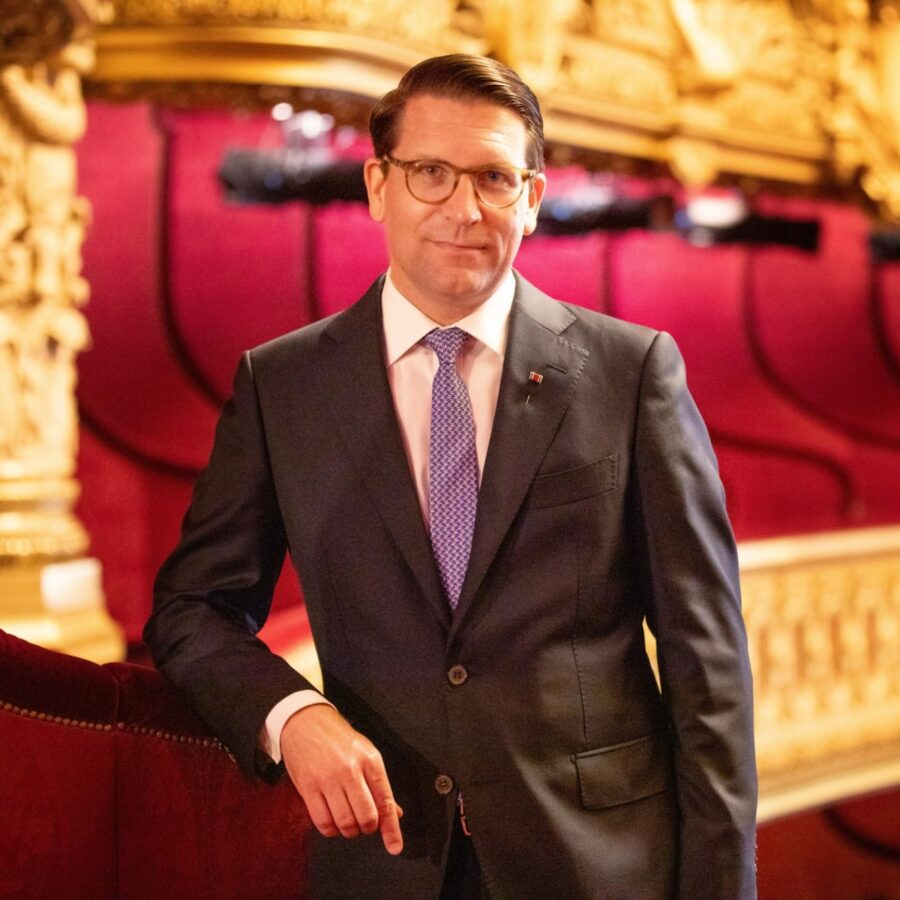
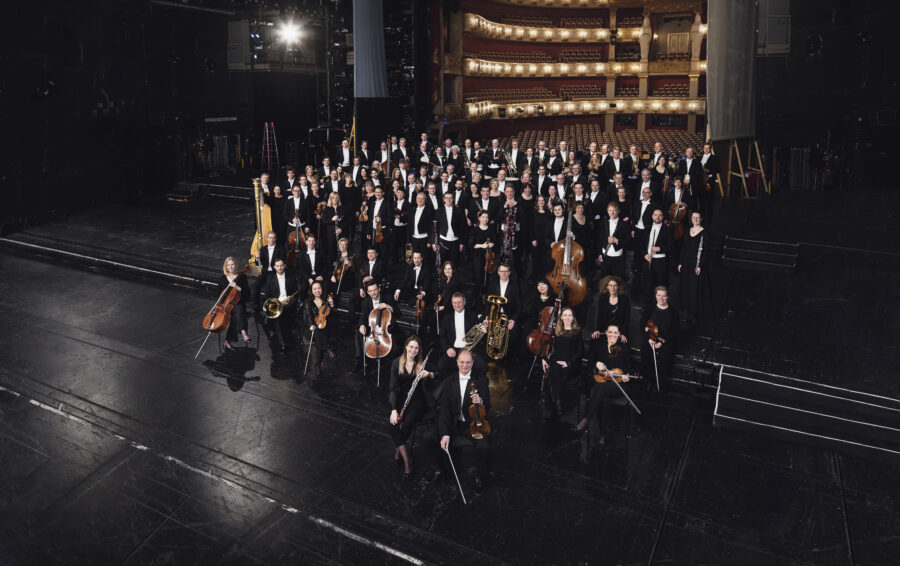
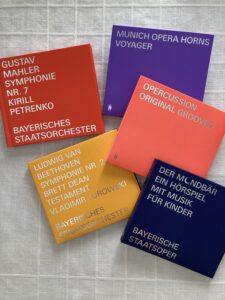
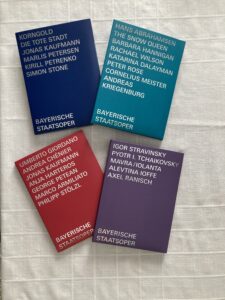
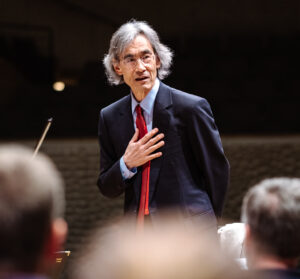

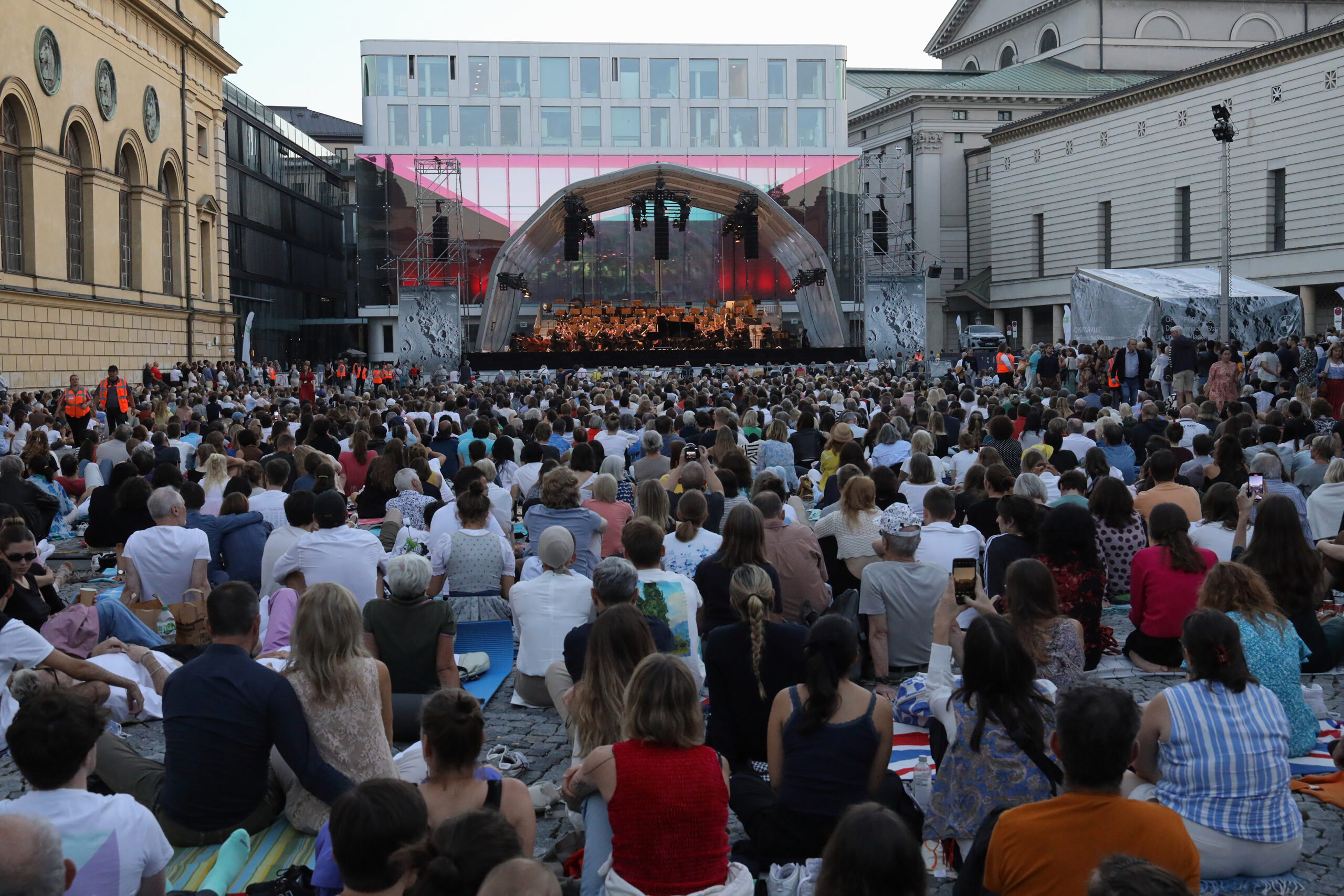
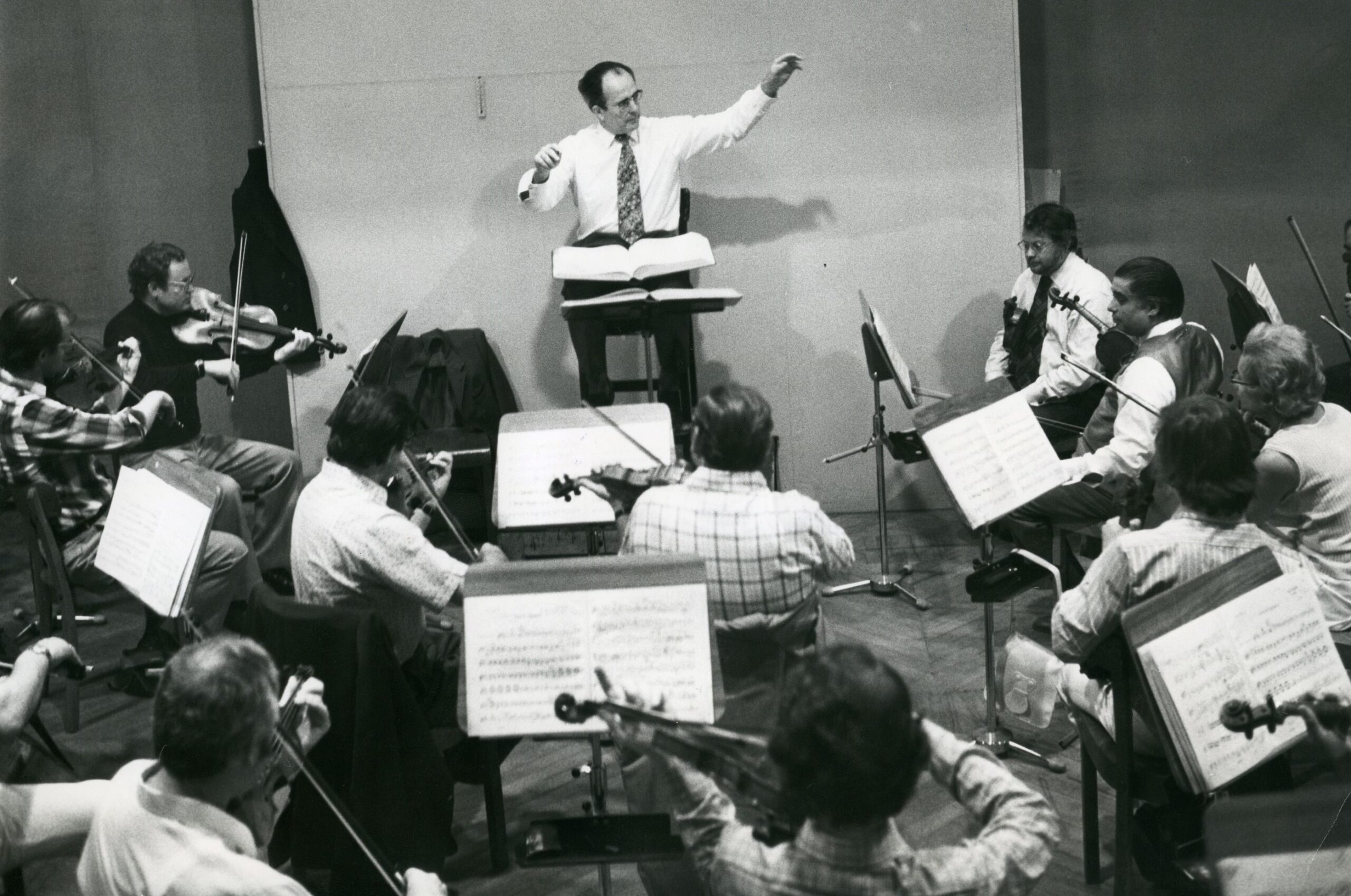
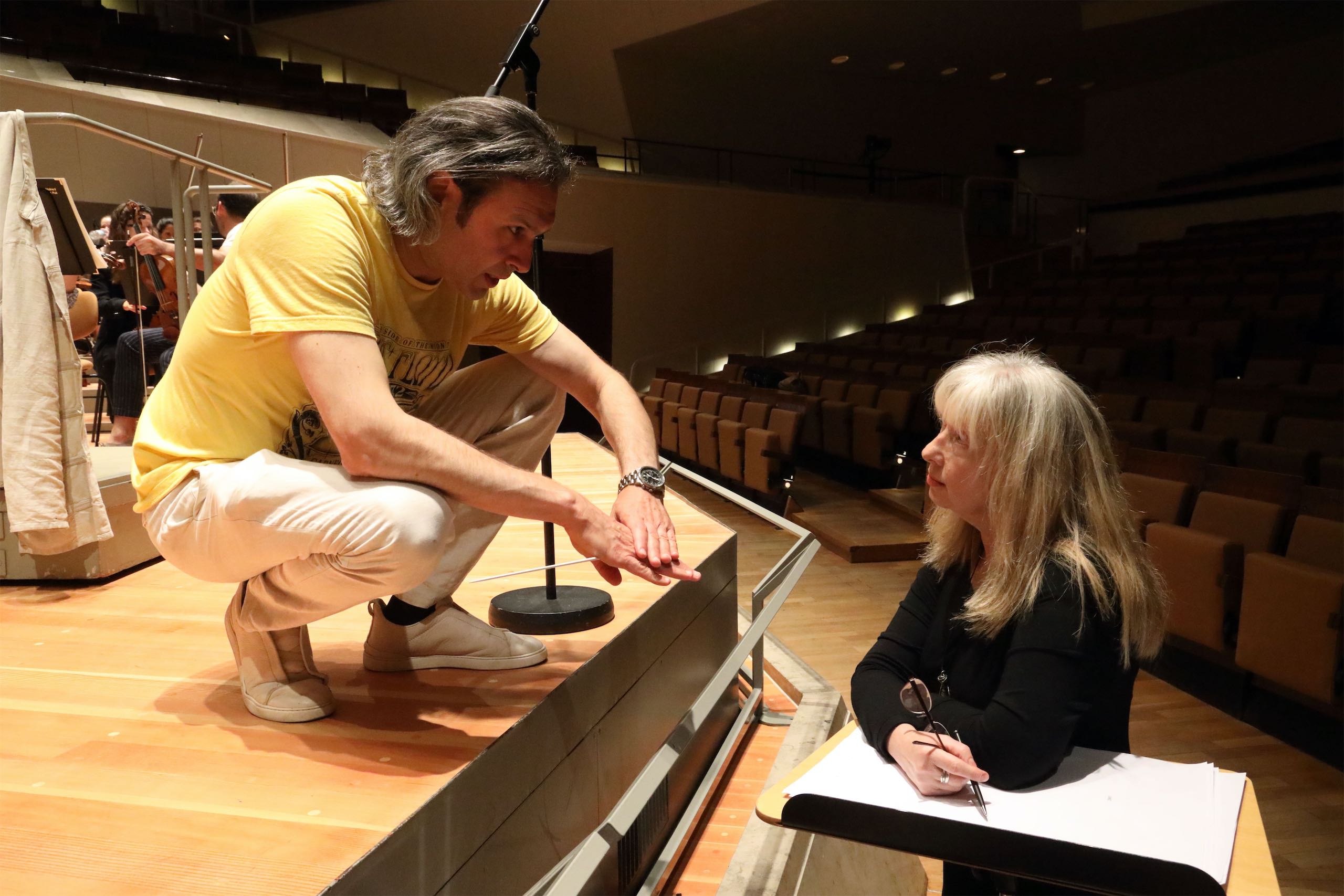
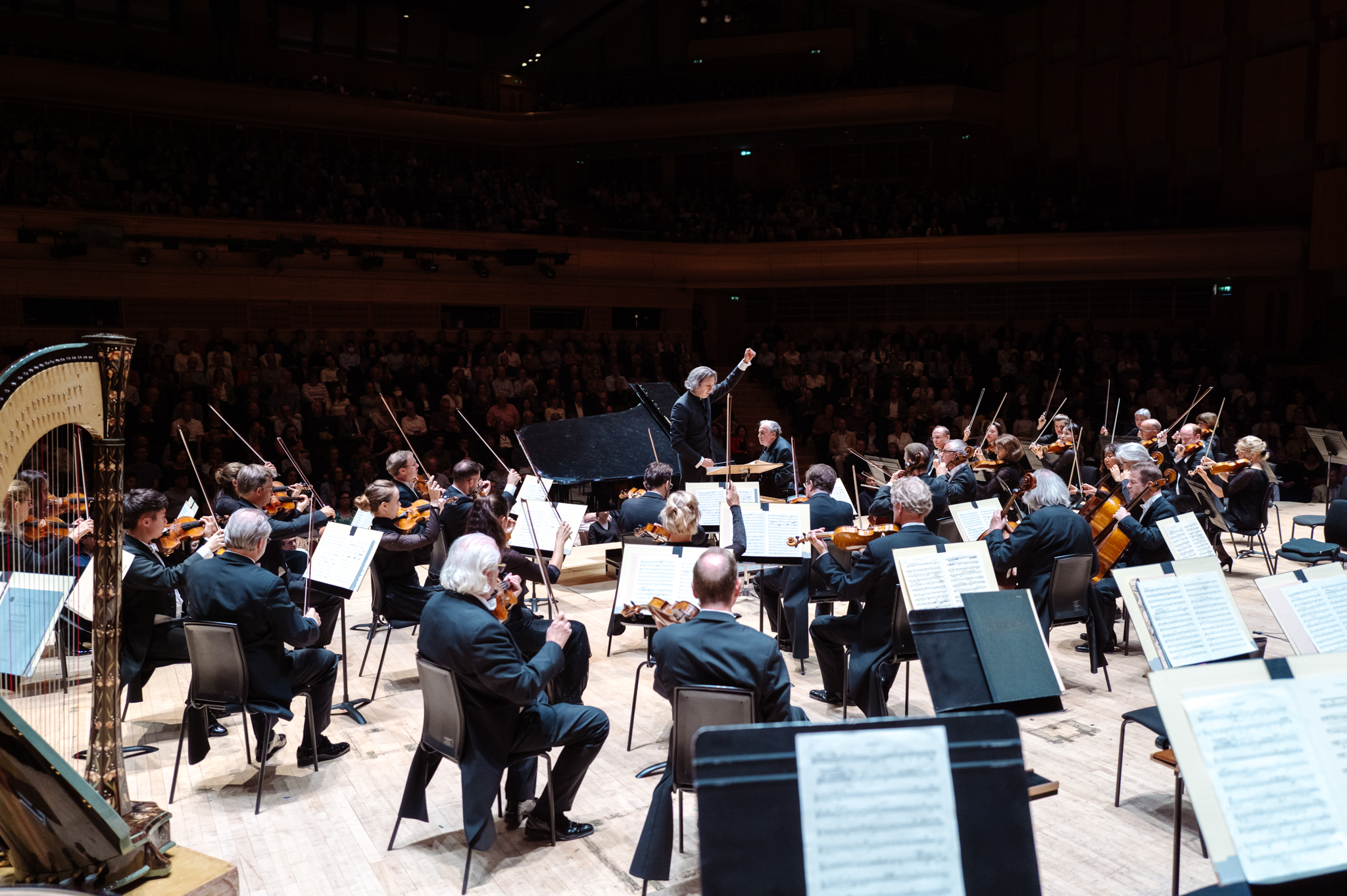
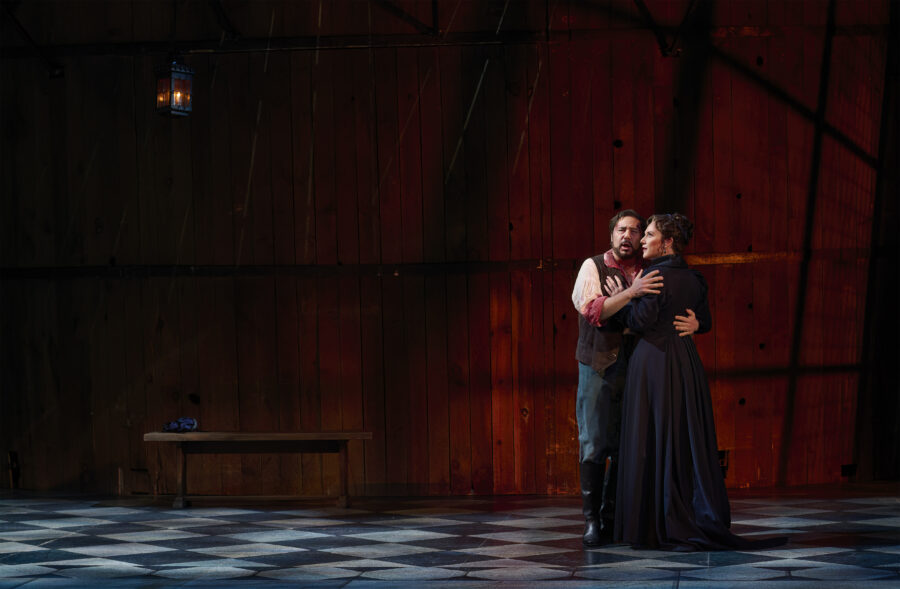
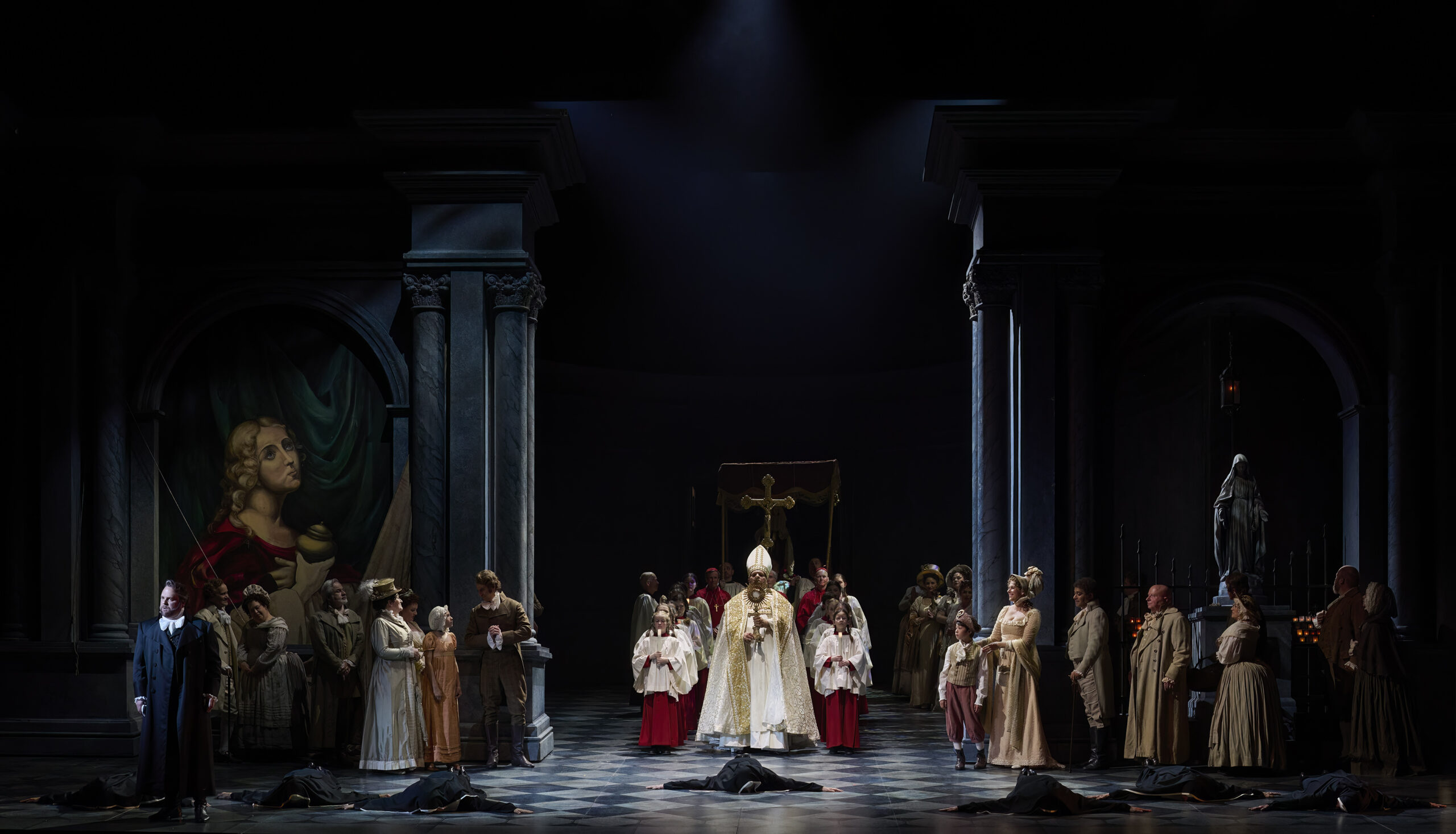
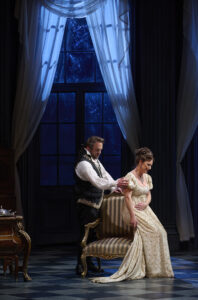
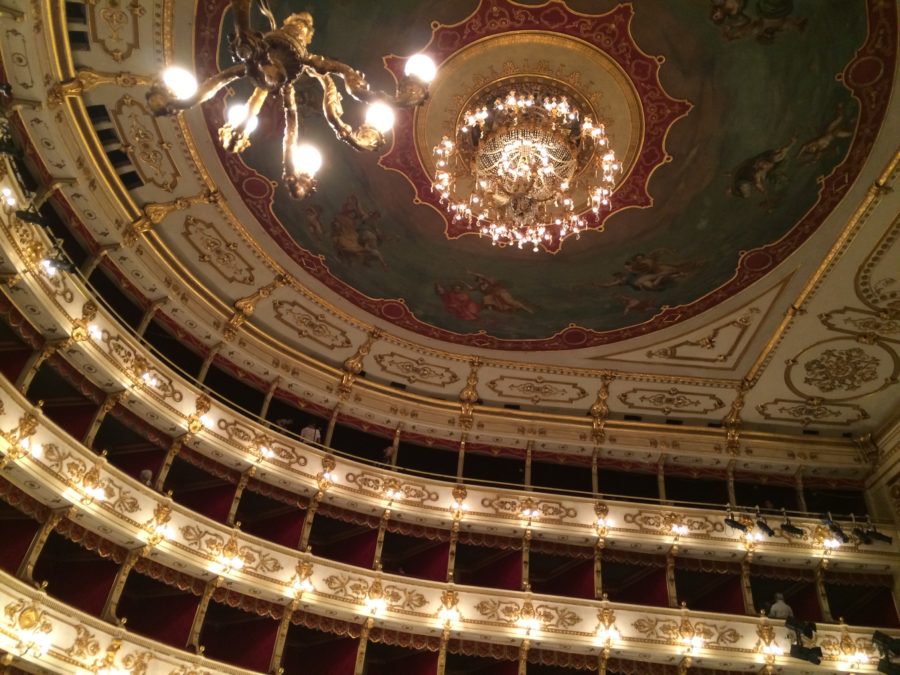
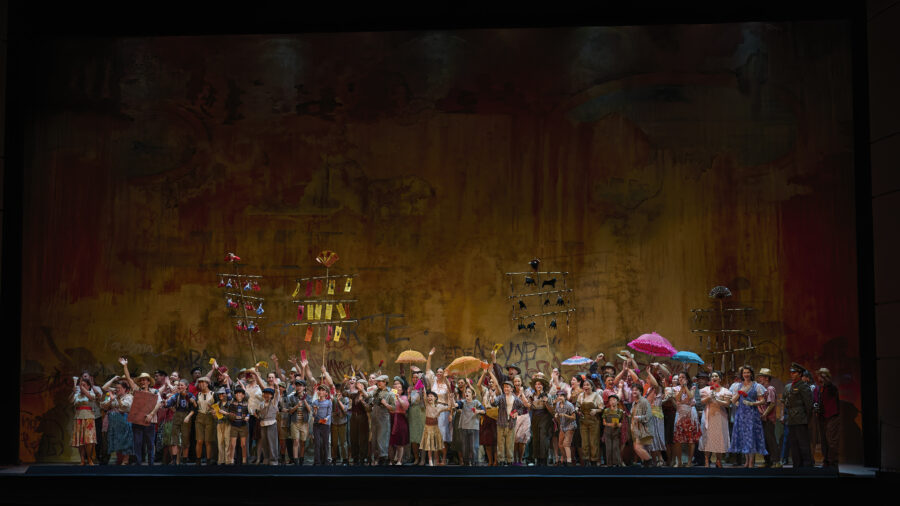
 Tori Wanzama is a new contributor. Her first opera was, in fact, my own introduction to the art form, at the age of four in what was then called the O’Keefe Centre in Toronto. It’s a bit too easy to close ears and heart to something that’s sat in one’s consciousness for so very long, and which is also a tremendous part of the cultural milieu; it is just as much of a challenge to re-open one’s mind to such a relentlessly (brilliantly) melodic work when one is constantly surrounded (by choice as much as necessity) by things so unlike it. And yet, Tori’s enthusiasm and creative insight all work together here to provide fresh, new ground – for me, as much as for those who feel too deeply rooted in classical cynicism. What can possibly grow in such highly acidified soil, after all? Tori’s writing gives opera newbies a bit of needed encouragement toward exploring an art form they (as she rightly outlines) might have their own preconceptions about, and also gives old cynics (alas) a new breath of the curiosity that felt so important to these pursuits in the first place. Reading her words was akin to seeing an old friend after many decades; all the old animosities simply departed. Tori is a second-year Communications student and has, as you will read, an incredible talent for the observation of stagecraft, as well as the nature of opera fandom itself. I look forward to publishing more of her work here in future.
Tori Wanzama is a new contributor. Her first opera was, in fact, my own introduction to the art form, at the age of four in what was then called the O’Keefe Centre in Toronto. It’s a bit too easy to close ears and heart to something that’s sat in one’s consciousness for so very long, and which is also a tremendous part of the cultural milieu; it is just as much of a challenge to re-open one’s mind to such a relentlessly (brilliantly) melodic work when one is constantly surrounded (by choice as much as necessity) by things so unlike it. And yet, Tori’s enthusiasm and creative insight all work together here to provide fresh, new ground – for me, as much as for those who feel too deeply rooted in classical cynicism. What can possibly grow in such highly acidified soil, after all? Tori’s writing gives opera newbies a bit of needed encouragement toward exploring an art form they (as she rightly outlines) might have their own preconceptions about, and also gives old cynics (alas) a new breath of the curiosity that felt so important to these pursuits in the first place. Reading her words was akin to seeing an old friend after many decades; all the old animosities simply departed. Tori is a second-year Communications student and has, as you will read, an incredible talent for the observation of stagecraft, as well as the nature of opera fandom itself. I look forward to publishing more of her work here in future.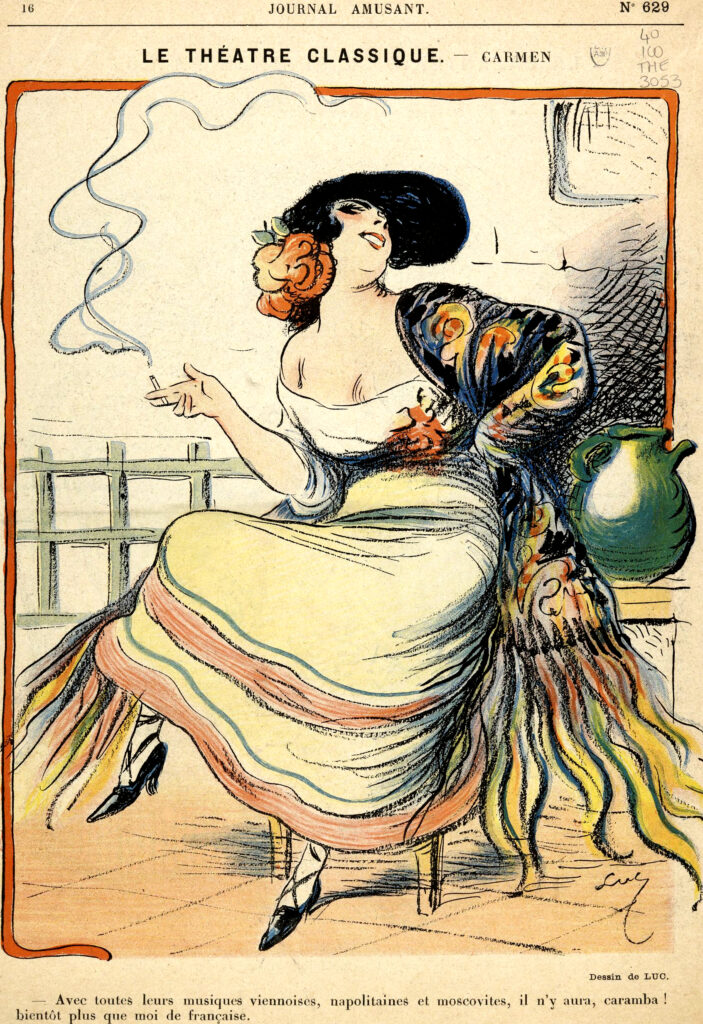
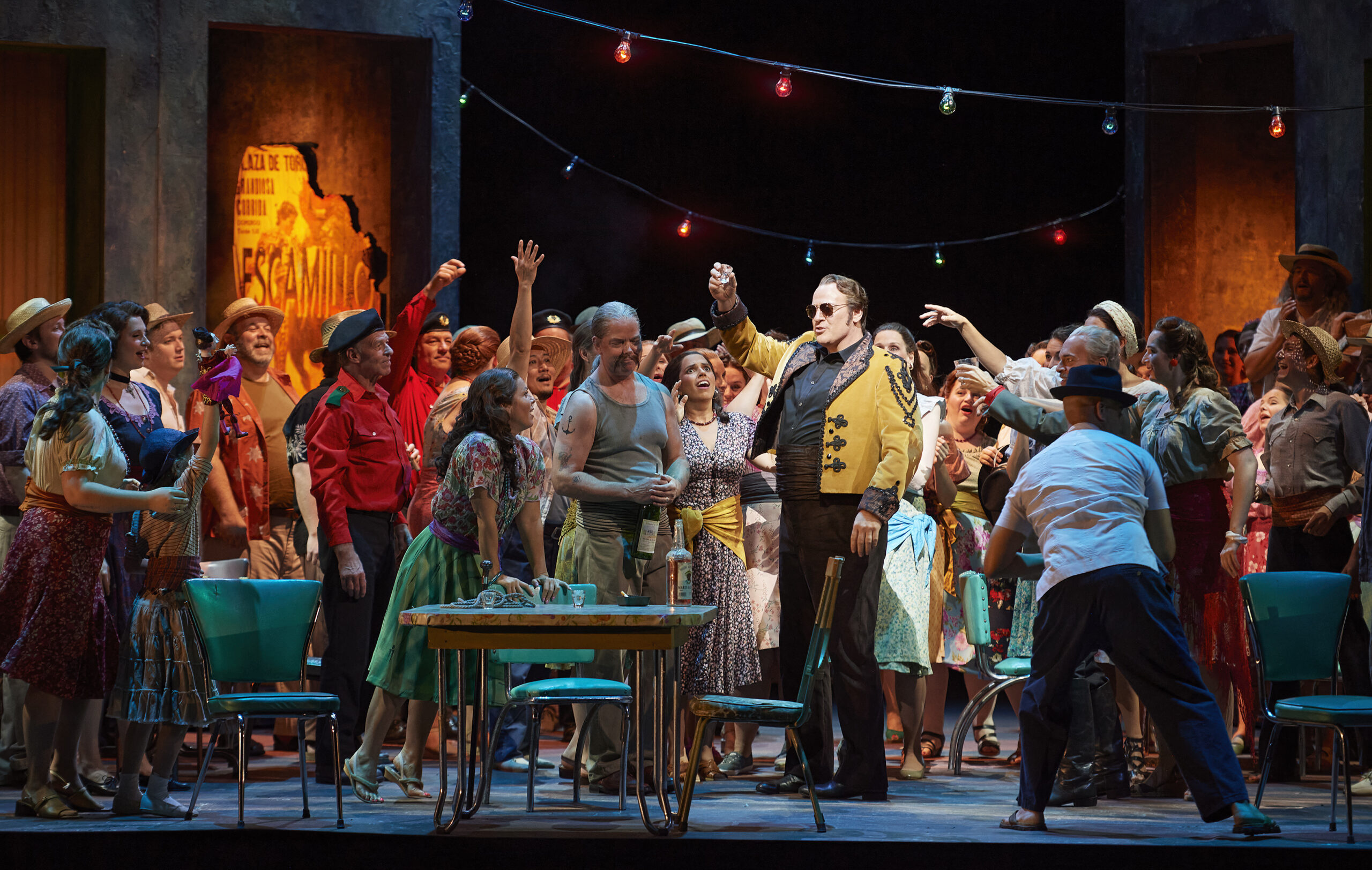
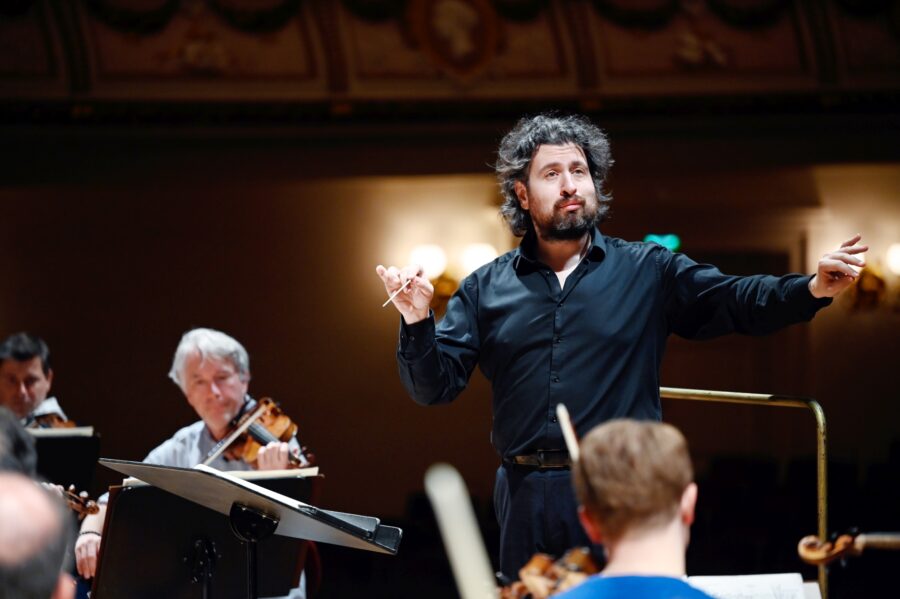
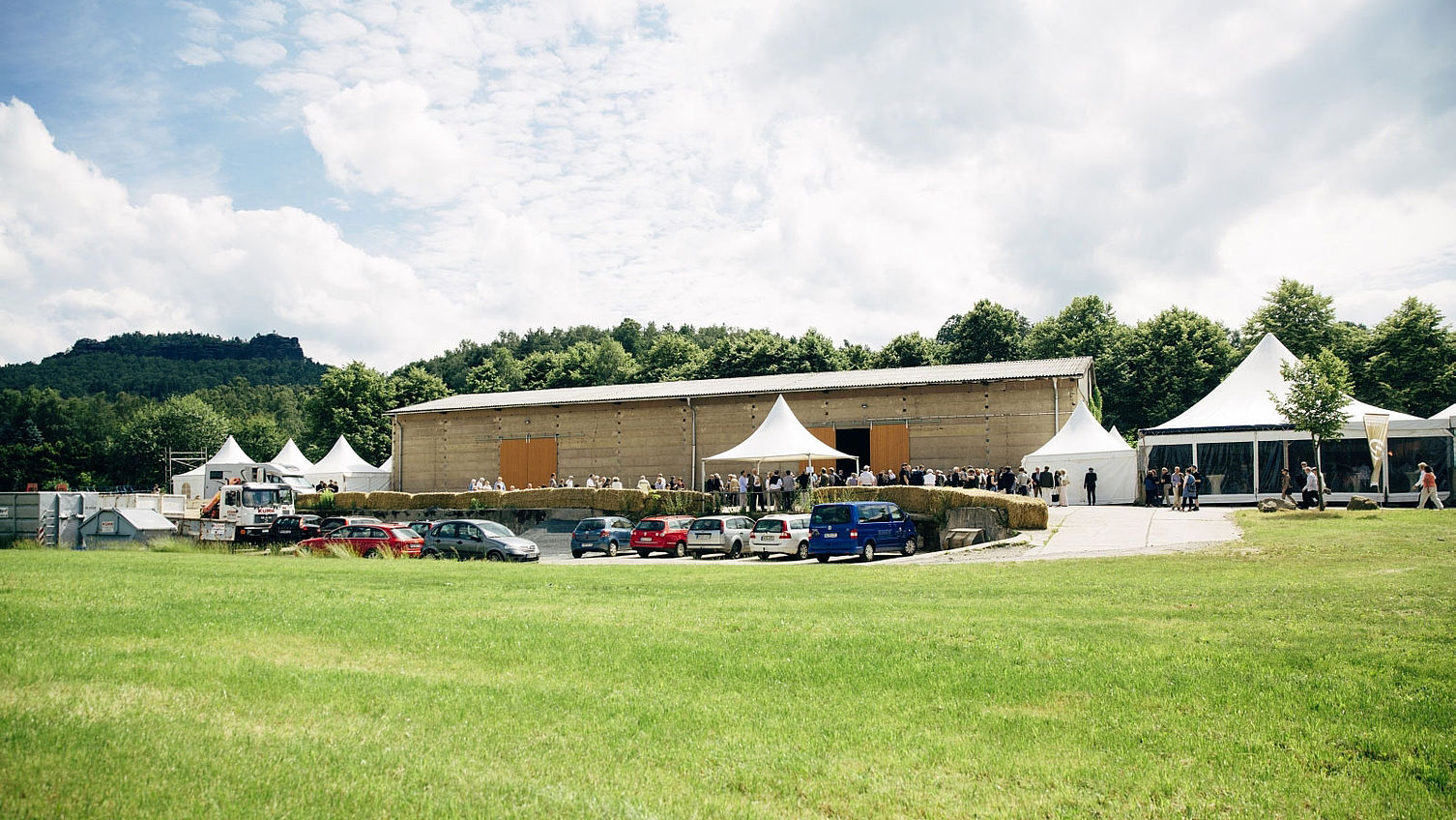
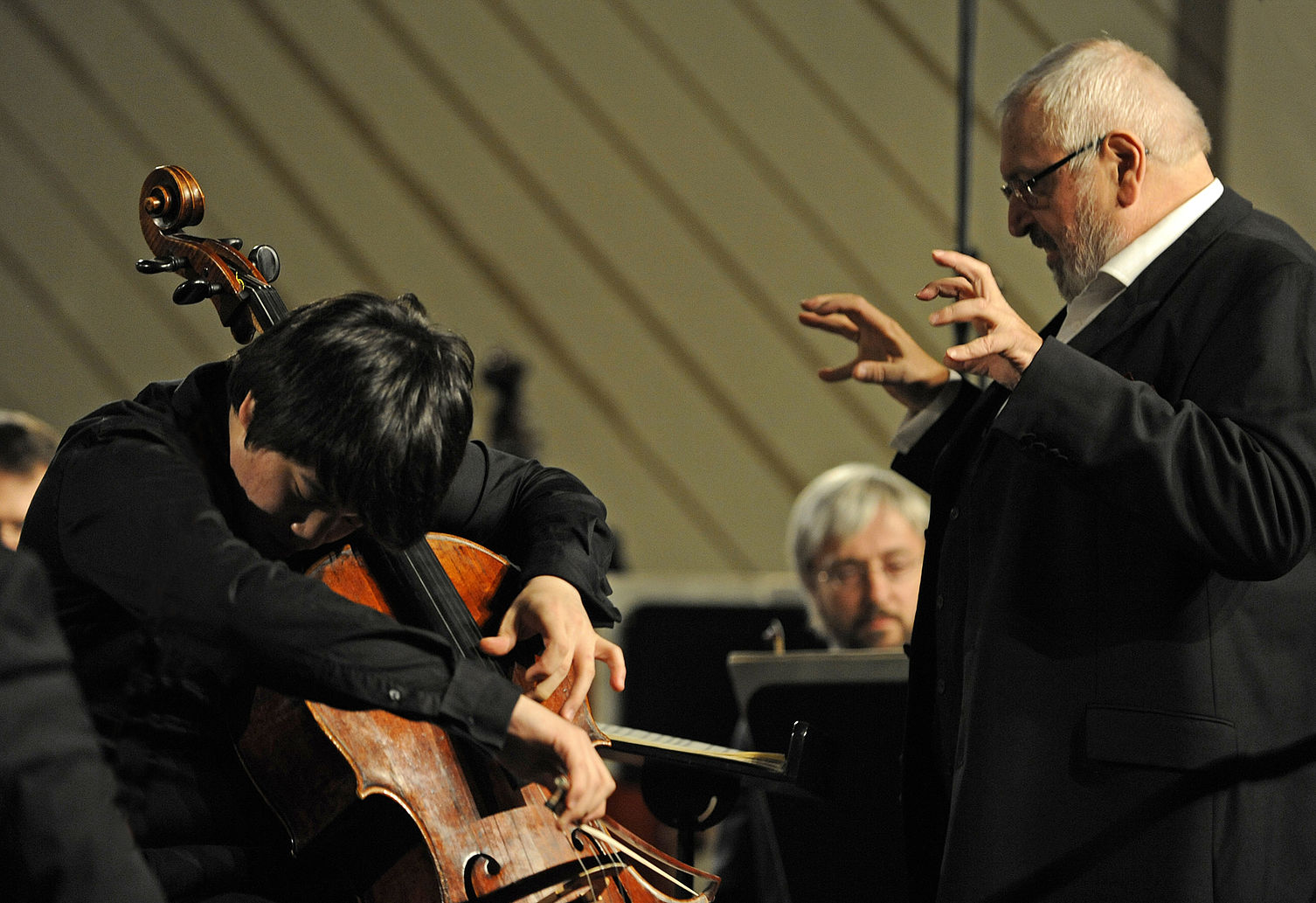

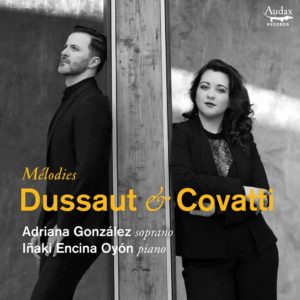 So what a treat it was, to come across the album
So what a treat it was, to come across the album 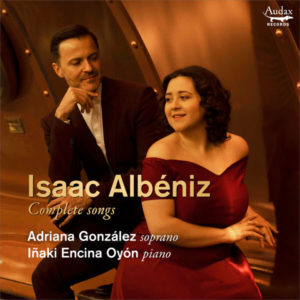 As I learned when we spoke recently, González, while highly aware of her powerful, affecting sound, is also aware of her desire to stretch, explore, and cultivate her talent creatively, with a firm hold of context at every step. We started off discussing what it was like to quickly step into the role of Liù for a performance of Turandot in Houston, as she was concurrently performing Juliette. Stress, what stress? González seems too focused a performer to let nerves ever get the best of her, and her recollection of the experience was coloured more by a mix off excitement, disbelief, and gratitude than any dregs of self-doubt. González is as much earthy as she is studious, and that intensity I referenced earlier is, as ever, always in the service of a knowing approach to craft. Such a combination of ingredients makes for a meal that satisfies toothsome ears, and for a very rewarding form of listening amidst post-pandemic times.
As I learned when we spoke recently, González, while highly aware of her powerful, affecting sound, is also aware of her desire to stretch, explore, and cultivate her talent creatively, with a firm hold of context at every step. We started off discussing what it was like to quickly step into the role of Liù for a performance of Turandot in Houston, as she was concurrently performing Juliette. Stress, what stress? González seems too focused a performer to let nerves ever get the best of her, and her recollection of the experience was coloured more by a mix off excitement, disbelief, and gratitude than any dregs of self-doubt. González is as much earthy as she is studious, and that intensity I referenced earlier is, as ever, always in the service of a knowing approach to craft. Such a combination of ingredients makes for a meal that satisfies toothsome ears, and for a very rewarding form of listening amidst post-pandemic times.